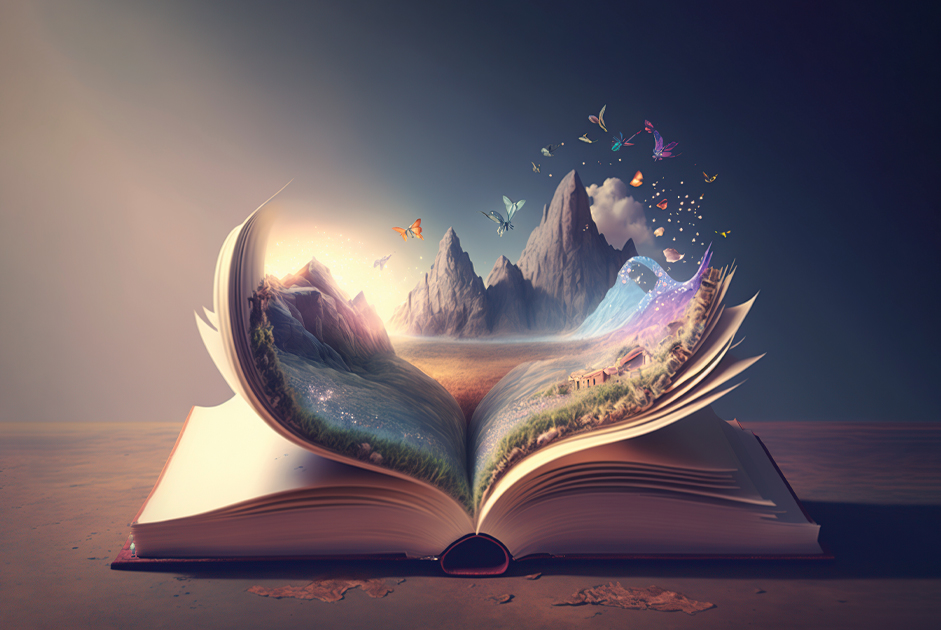When I pick up a new book in a certain genre, there are specific elements I hope the book will have. For example, if I am reading a mystery novel, I expect there will be an area of suspense and clues that lead up to a fulfilling conclusion. If I am reading a Nicholas Sparks book, I know there will probably be a romance based in North Carolina, at least one death of a character, and a somber tale somewhere in the book. This thinking can be said for many readers. They often gravitate towards a favorite genre because of the elements associated with that genre. There are many recipes for good stories, but certain elements or ingredients are needed to create an established taste. And when those elements are mixed together, a wonderful tale is the result.
Of course, some of the elements are subjective and vary from reader to reader. Yet, there are many that hold true to making a genre. Do your elements needed for a good story fit the recipes below?
The Recipe for a Good Story – A Bases for All Fiction Genres
- A variety of characters including a protagonist (the main character) and an antagonist (an opposing force your protagonist will have conflict with, such as a character, the setting, weather, etc.) All characters should have a purpose; a reason for being included in the story. Their dialogue should help characterize them and we are clearly able to see who they are, while still being left with a sense of mystery to make inferences about their thoughts and actions. There is a balance of showing and telling about the characters from the author. Lastly, the characters are well-thought out and aren’t perfect. These characters are humans and flawed.
- A strong plot that flows from its opening that draws you in, through its steady middle, and to its conclusive ending. For me, I prefer my books to tie up in the end, unless there is a sequel. Also, a plot that doesn’t have you flipping back to the previous pages to figure out the connections between events and dialogue.
- Conflict – It can be large or small, but there must be a challenge in the book.
- Descriptive Details – Again, show the reader, while also telling the reader the who, what, when, where, why, and how of all the characters and events.
- Originality – I have read many books with the same plot foundation and just a change here and there. All good stories should be different, avoid common cliches, and common plot structures. Yes, there is only so much an author can do to an extent, but originality is a must. It is very refreshing to read a book with varying perspectives in each chapter or how the hero may not save the day.
Looking genre specific, there are a few more ingredients needed to strengthen the novel. The elements are in addition to the ones listed above.
The Recipe for a Good Mystery and Thriller –
- All clues are developed, descriptive, and readers are able to see what the author was thinking when they created the mystery. There are some mystery books I have encountered that needed a little more explanation to help the reader see into the author’s mind. These stories went from point A (this happened) to point B (the character did something) with little to no detail.
- Powerful Ending – No reader wants to read a hundred plus pages, sitting on the edge of their seat, waiting to solve the mystery to have the novel come to a humdrum conclusion.
The Recipe for a Good Romance –
- An Unpredictable Ending – The novel In Five Years by Rebecca Serle does a good job of this. The story leads you to believe there will be a predictable romantic ending with the main characters. However, right at the end, there is an unexpected twist. (Sorry, spoiler alert!)
- Likable Characters – This doesn’t pertain to every genre, but in a romance, the characters need to be engaging, in order for the reader to follow the story.
The Recipe for a Good Nonfiction –
- Clear and Engaging Style of Writing – A nonfiction book is different from fiction books, since the information in the novel is all true and fact based. Nonfiction books are usually read less than fiction ones. Nonfiction stories need to be engaging and clear to read from start to finish.
- Quickly Get to the Point of the Topic, Issue, Problem, or Solution – A nonfiction book should state early on what the book is about and take the reader on a journey to learning more about the topic.
- An Impactful Title – With any book, a title is what pulls most readers in. For nonfiction books, I want to know exactly what I am reading about before opening the first page.
Good stories vary from person to person. Yet, there are common elements, characteristics, and ingredients that separate the okay stories from the good and great ones.



















